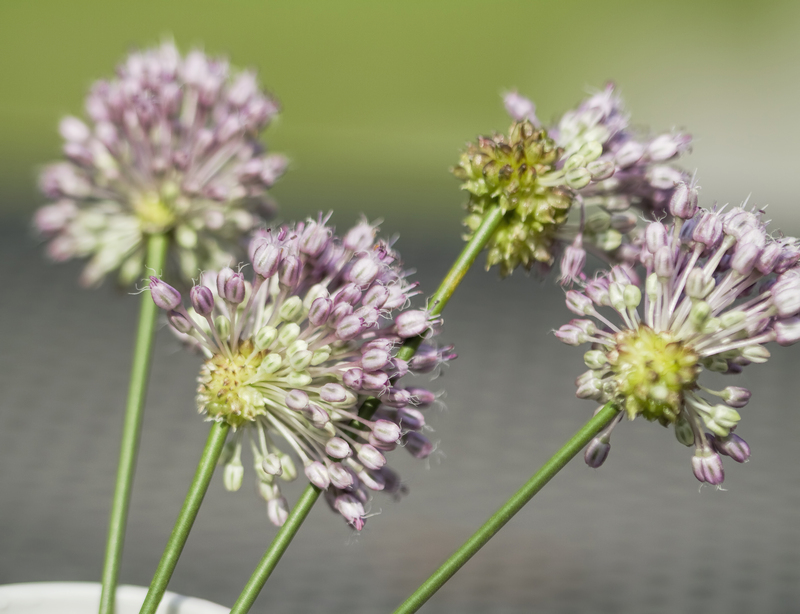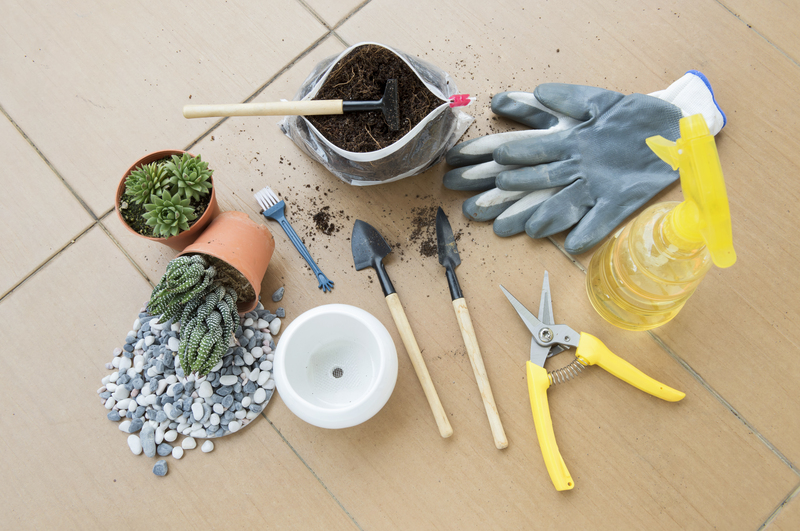Revolutionize Your Garden: 3 Key Tips for Weed Control
Posted on 29/06/2025
Revolutionize Your Garden: 3 Key Tips for Weed Control
Is your garden overrun with pesky weeds? Are you tired of battling unwanted intruders every season? You're not alone. Weeds are the bane of every gardener's existence, but with the right strategy, you can transform your green space into a weed-resistant haven. Discover how to revolutionize your garden with these three key tips for effective weed control. These methods are scientifically backed, environmentally friendly, and guaranteed to give you healthier, more beautiful plants with less hassle.
Understanding the Impact of Weeds in Your Garden
Weeds compete with your precious plants for essential nutrients, water, sunlight, and space. They can introduce pests and diseases, undermine your garden's appearance, and make maintenance an exhausting chore. Knowing how to manage them effectively is the cornerstone of successful gardening.
- Weeds can steal up to 50% of soil nutrients from your crops.
- They grow rapidly and spread quickly, making early intervention crucial.
- Many invasive species can take years to eradicate if left uncontrolled.
Effective weed management techniques are essential for every gardener determined to create a thriving, low-maintenance landscape. Let's dive into three proven tips that will help you master weed control in your garden.

1. Prioritize Preventative Weed Control Strategies
Start with Soil Health and Garden Design
The first step to revolutionizing weed control is preventing weeds from establishing in the first place. Selective cultivation and thoughtful planning can stop most weeds before they invade your garden beds.
- Opt for raised beds or defined garden borders. These physical barriers make it harder for weeds to encroach on cultivated areas.
- Use high-quality, weed-free mulch. Organic options like wood chips, straw, or shredded bark suppress weed germination by blocking sunlight and forming a physical barrier.
- Sow cover crops. Quick-growing green manures like clover or vetch outcompete weeds, replenish soil nutrients, and reduce bare soil exposure.
- Avoid turning the soil unnecessarily. Excessive tilling brings dormant weed seeds to the surface, triggering new growth.
Did you know? Mulching not only keeps weeds at bay but also helps the soil retain moisture, moderates soil temperature, and promotes healthier root systems for your plants.
Create Dense Plantings
Dense plantings can choke out weeds naturally by minimizing open spaces where weed seeds can sprout. Choose ground covers, companion plants, and spreading varieties to fill bare spots quickly. The more ground your desired plants cover, the fewer opportunities weeds have to take hold.
- Interplant vegetables with fast-growing crops such as radishes or lettuces, which can act as living mulch to shade soil.
- In flower beds, utilize low-growing perennials and succulents, creating a living carpet over exposed soil.
Tip: Walk around your garden regularly to spot and address any emerging bare patches before they attract weeds.
2. Embrace Organic and Eco-Friendly Weed Control Methods
Modern gardening emphasizes environmental stewardship. Aggressive chemical herbicides can harm pollinators, pets, and beneficial soil life. Fortunately, organic weed control solutions are effective, sustainable, and safe for the entire ecosystem.
Manual Weeding: Keep It Consistent
Hand-pulling weeds remains one of the most reliable ways to maintain your garden. Start early--young weeds are easier to remove and less likely to have extensive roots. Invest in ergonomic weeding tools (such as a stirrup hoe or dandelion digger) to minimize physical strain.
- Weed after rainfall, when soil is moist and roots come out more easily.
- Dispose of weeds appropriately, especially those with seeds or rhizomes, to prevent future infestation.
- Make weeding a regular part of your weekly garden routine. Five minutes per session can make a world of difference.
Use Boiling Water or Vinegar as Natural Weed Killers
Boiling water and horticultural vinegar are powerful, non-toxic weed control methods for driveways, paths, or between paving stones. Simply pour slowly over targeted weeds, being careful to avoid desirable plants.
- Boiling water destroys cell structure instantly, works best on young, shallow-rooted weeds.
- Vinegar (acetic acid) desiccates foliage, but may need several applications for persistent weeds.
Note: These methods are nonselective and can harm any plant they touch, so use with precision and care.
Solarization: Harness the Power of the Sun
Solarization is a proactive weed control strategy, ideal for preparing new plots or heavily infested areas. Spread clear plastic sheeting over moist soil during the hottest summer months. The trapped solar energy raises soil temperatures to levels lethal to many weeds and pathogens.
- Four to eight weeks of solarization can virtually sterilize the topsoil without chemicals.
- Follow up by mulching or planting fast-growing cover crops to prevent re-infestation.
3. Establish a Long-term Integrated Weed Management Plan
Rotate Crops and Change Planting Patterns
Many garden weeds specialize in the conditions created by growing the same plants in the same place year after year. Crop rotation disrupts their life cycles and reduces weed pressure. For example, alternate between shallow- and deep-rooted crops, or follow nitrogen-fixing legumes with heavy feeders.
- Switch up locations for annual beds to prevent weeds adapted to specific crops from gaining an advantage.
- Introduce a fallow period with dense cover crops to suppress weeds and restore soil fertility.
Monitor and Respond Quickly
Vigilant monitoring is key to minimizing weed problems before they escalate. Walk your garden weekly looking for new outbreaks. Remove weeds as soon as they appear and update your garden design as needed. Timing is everything--removing seedlings before they set seed can reduce your weed seed bank exponentially.
- Keep a garden diary to track problem spots and record which strategies prove most successful.
- Adjust watering routines to only water desired plants, not whole beds, depriving weeds of essential moisture.
- Consider landscape fabric or biodegradable matting in trouble spots for added protection against aggressive weeds.
Apply Innovative Tools and Modern Technology
Today's home gardeners have access to cutting-edge resources for weed management. Consider these tools in your long-term arsenal:
- Flame weeders: These propane devices sear weeds in walkways and gravel areas--effective with minimal impact on soil life when used responsibly.
- Drip irrigation systems: Targeted watering discourages weed growth between plants and improves water efficiency.
- Weed-barrier geotextiles: Under stone or mulch pathways, these fabrics provide an extra layer of defense against weeds.
Remember: No single method works alone. Integrated weed management--combining strategies--delivers the best, long-term weed control while caring for your garden's health.

Bonus: Top 5 Quick Wins for Immediate Weed Suppression
Implement these simple weed control tips for instant improvement:
- Mulch immediately after planting to protect bare soil from weeds.
- Edge beds with shovel or lawn edger to remove encroaching weeds from the margins.
- Keep your lawn healthy and tall; longer grass shades out many lawn weeds naturally.
- Deadhead invasive weeds quickly, such as dandelions or thistles, before they spread seeds.
- Never let weeds flower or go to seed. Early removal dramatically reduces the next generation.
Conclusion: Enjoy a Healthier, Weed-Resistant Garden
Revolutionizing weed control in your garden doesn't require toxic chemicals or endless labor. By using preventative gardening strategies, embracing organic weed control methods, and adopting a holistic, long-term management plan, you'll create a beautiful, resilient landscape while saving time and effort. Stay proactive, stay vigilant, and let your garden thrive--weed-free and flourishing.
If you're ready to say goodbye to weeds for good, start implementing these game-changing weed management tips today. Share your successes, try new ideas, and watch your garden transform into the oasis you've always dreamed of.
Frequently Asked Questions About Weed Control
- What's the best mulch to suppress weeds?
Organic materials like bark, straw, or cocoa hulls are excellent choices as they suppress weeds and enhance soil health. For long-term, consider combining with landscape fabric. - How often should I weed my garden?
Ideally, conduct light weeding once a week. Early intervention is the most efficient approach. - Are chemical herbicides ever necessary?
In most home gardens, natural and manual methods can achieve excellent weed control without resorting to chemicals.
For more expert gardening tips and comprehensive guides on weed management, bookmark this page and revisit for fresh updates!
Latest Posts
Innovative Ways to Convert Waste into Rich Soil
Fostering Curiosity: Building a Child's Garden
Key Gardening Equipment for Green Space Lovers



